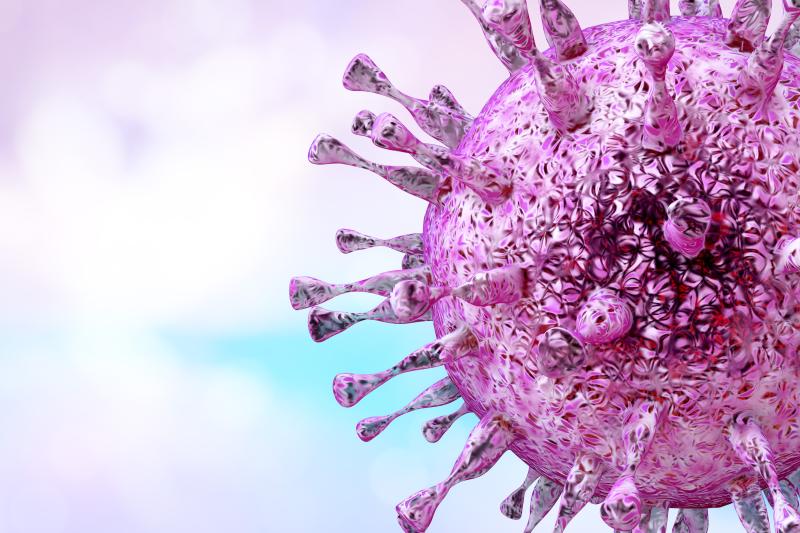
There is currently no approved treatment for the novel coronavirus disease (COVID-19) because of lack of evidence, but several clinical trials are being carried out across the globe to find a cure in the soonest time possible.
To keep track of the latest developments in the field, Waquar Ahsan and colleagues from Jazan University in Saudi Arabia have initiated a review of various approaches of COVID-19 treatment and of some of the most recent clinical trials in process. [Drug Discov Ther 2020;doi:10.5582/ddt.2020.03008]
“A number of trials have been and are being conducted to come up with a drug which shows significant efficacy and safety in the treatment of COVID-19,” the researchers said. “Few have shown encouraging results, and few are in pipeline.”
Here’s a short list of 10 potential treatments for COVID-19:
1. Convalescent Plasma – The plasma of recovered patients may help treat those with severe COVID-19 as it contains antibodies developed by the body in response to the viral infection. A clinical trial carried out between 23 January 2020 and 19 February 2020 reported five of 10 patients showing rapid increase in the antibody titre values to 1:640, while the other four also demonstrated high titre values. Clinical symptoms significantly improved, including better oxyhaemoglobin saturation, increased lymphocytes count and reduced level of C-reactive protein with no adverse effects. [PNAS 2020;117:9490-9496]
2. Chloroquine (CQ) and Hydroxychloroquine (HCQ) – CQ is originally used as an antimalarial drug. In vitro studies conducted recently found that CQ inhibited SARS-Cov-2, the virus that causes COVID-19, at EC50 1.13 µM and CC50 >100 µM. There are at least 16 trials registered to examine the efficacy and safety of CQ and HCQ in the treatment of COVID-19 patients. [Cell Res 2020;30:269-271]
3. Sarilumab – A human monoclonal antibody against the interleukin-6 (IL-6) receptor, the host target for SARS-Cov-2, sarilumab is expected to lessen the overactive inflammatory response of the lungs by blocking the IL-6 receptor. Three clinical trials will test the efficacy and safety of sarilumab and remdesivir, a new investigational drug. [www.prnewswire. com/news-releases/regeneron-and-sanofi-begin-globalkevzara-sarilumab-clinical-trial-program-in-patients-withsevere-covid-19-301024752.html; www.news.sanofi.us/2020-03-16-Sanofiand-Regeneron-begin-global-Kevzara-R-sarilumabclinical-trial-program-in-patients-with-severe-COVID-19; www. clinicaltrialsarena.com/news/feinstein-institutes-covid-19- trials/]
4. Remdesivir – This antiviral drug was originally developed to fight the Ebola virus. Gilead Science recently published results of compassionate use of remdesivir, in which 30 of 61 severely ill COVID-19 patients on mechanical ventilation showed significant improvement and 17 were extubated. Twenty-five patients were discharged and seven died, of whom six were on invasive ventilation and one was not. [N Engl J Med 2020;doi:10.1056/NEJMoa2007016]
5. Darunavir – An antiviral drug used as HIV-1 protease inhibitor, darunavir demonstrates anti-SARS-CoV-2 activity in vitro in a test performed in China. It inhibited the viral replication at a concentration of 300 µM, but on 18 March 2020, Johnson and Johnson announced that there is no evidence to support the activity of darunavir against SARS-CoV-2. [www.sd.chinanews. com/2/2020/0205/70145.html]
6. Favipiravir – More popularly known as Avigan, favipiravir or T-705 was approved for the treatment of the influenza virus. It inhibits RNA-dependent RNA polymerase in RNA virus such as SARS-CoV-2. A preliminary trial in February was carried out on 80 patients and indicated better results for favipiravir than for lopinavir/ritonavir, with fewer adverse effects. Another clinical trial reported encouraging results with patients showing cleared viral load in 4 days as compared to 11 days in those receiving standard care only. Favipiravir was first developed by Fujifilm in Japan. [Antivir Res 2018;153:85-94; www.medicalnewstoday.com/articles/anti-flu-drug-effective-in-treating-covid-19; www.sciencedirect.com/science/article/pii/S2095809920300631]
7. Umifenovir – This drug demonstrates promising activity against SARS-CoV-2 in vitro by inhibiting the virus at concentration as low as 10–30 µM. In a randomized, open-labeled, multicentred clinical trial published on 20 March 2020, patients were assigned to receive either umifenovir or favipiravir. The 7 days’ recovery rate for umifenovir was 55.86 percent vs 71.43 percent for favipiravir (p=0.0199). [www.medrxiv.org/content/10.1101/2020.03.17.20037432v4]
8. Lopinavir/Ritonavir – The combination of lopinavir and ritonavir was approved for the treatment of HIV and was also found to have anti-SARS-CoV efficacy in vitro. However, a recent clinical trial on severe COVID-19 patients did not show any benefit when compared to standard care. No significant clinical improvement and no reduction in deaths were observed for those who received lopinavir/ritonavir. [Thorax 2004;59:252-256; N Engl J Med 2020;doi:10.1056/NEJMoa2001282]
9. Interferon-α (IFN-α) – IFN-α is a broad-spectrum antiviral drug approved for treating viral hepatitis. It has been used to treat COVID-19 at a dose of 5 million units through vapour inhalation twice a day alone or in combination with ribavirin (500 mg 2–3 times a day) and lopinavir/ritonavir (400 mg/100 mg) for 10 days. Findings showed that SARS-CoV-2 is more susceptible to IFNs as compared to SARS-CoV as inhalation of IFN-α 2b lowered the infection rate. [Biosci Trends 2020;14:69-71; Drug Discov Ther 2020;14:58-60; Antivir Res 2020;178:104791; World J Pediatr 2020;doi:10.1007/s12519-020-00344-6]
10. Interferon-β (IFN-β) - IFN-β was developed for the treatment of chronic obstructive pulmonary disorder. A previous study reported that a decrease in IFN-β production is directly linked to increased susceptibility to severe respiratory diseases from viral infections. It was also observed that SARS-CoV-2 infection suppresses IFN-β production. A UK biotechnology firm has recently been given the go signal to conduct a trial using IFN-β on COVID-19 patients. [Antivir Res 2020;178:104791; www.pharmaceutical-technology.com/comment/synairgensng001-covid-19-trials/]
“Hopefully, we would be able to identify the most suitable approach to combat this deadly virus very soon and make this world a healthy place to live again,” the researchers said.